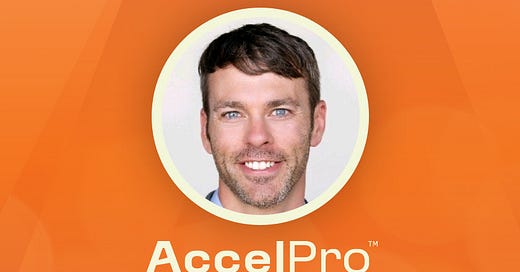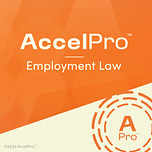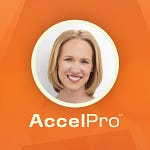We hope you’re finding value in our weekly expert interviews and series of events. Your engagement and feedback shape the topics we cover and the career products we offer. Sign up now, and your annual membership will include a free trial and a discount of more than 40%.
Welcome to AccelPro Employment Law, where we provide expert interviews and coaching to accelerate your professional development. Today, we are featuring a discussion with Ben Eubanks about artificial intelligence and bias.
Eubanks, the author of Artificial Intelligence for HR, blogger and podcast host, is Chief Research Officer at Lighthouse Research and Advisory, where he has done intensive study on the use of AI and how to identify, mitigate and prevent bias. He says one particular trait can help HR executives on this issue.
“Harvard did some really interesting research that looked at curiosity and said, ‘Hey, people who are great at curiosity, who have that muscle that are willing to stretch that muscle, they’re much less likely to believe bias,’” Eubanks says. “The curious person says, ‘I wonder how you prove that. I wonder if that’s true. How do you know?’”
To listen to or read the full interview, join our paid membership program. The benefits of joining:
The weekly podcast available in the player of your choice
Transcripts and supplemental materials for each interview
Private group events inspired by your requests
Curated collections from the archive, including Unions and Discrimination
CLE credit based on the interviews is coming soon
If you sign up now, your annual membership will include a free trial and a discount of more than 40%.
Of course, you’re welcome to stick with your free subscription. With that, you’ll receive one full interview each month, along with samples of the weekly podcast. And occasional events will be open to everyone.
Most AccelPro members expense their memberships or take a tax deduction. Please let us know if your employer has any questions about our community.
Interview References:
Ben Eubanks’ Lighthouse profile.
0:47 | Eubanks, Ben. (2022). Artificial Intelligence for HR: Use AI to Support and Develop a Successful Workforce. Kogan Page.
4:52 | Assessing Adverse Impact in Software, Algorithms, and Artificial Intelligence Used in Employment Selection Procedures Under Title VII of the Civil Rights Act of 1964. US Equal Employment Opportunity Commission.
7:02 | Eubanks, Ben. 10 Reasons Humans are Terrible at Hiring (and How AI Can Help). (4 September, 2019). Lighthouse Research and Advisory.
10:53 | Eubanks, Ben. Positive & Negative Effects of Artificial Intelligence. (11 June, 2019). Kogan Page.
Supplemental Materials:
Wittenberg-Cox, Avivah. Uber's Gender Pay Gap Study May Show The Opposite Of What Researchers Were Trying To Prove. (23 September, 2018). Forbes.
TRANSCRIPT
Matt Crossman, Host: You are the Chief Research Officer at Lighthouse Research and Advisory. What is Lighthouse and what do you do for them?
Ben Eubanks: I get a chance to play in data all day long. We do research on the workforce, on the workplace, what’s changing, what’s trending. We collect thousands of workforce responses and employer responses, gathering that data and then deciding what’s next, what’s changing, how are things trending, and what can we draw from that to help my friends over on the HR side of the aisle make better decisions day to day.
MC: We’re going to talk about AI and bias in hiring. You literally wrote the book on the subject. In Artificial Intelligence for HR, you wrote, “I believe we are on the cusp of an incredible shift in the technology landscape that has the capability to affect how HR gets done at companies around the world.”
To set the context, where are we in terms of the shift toward AI and hiring?
BE: I’m seeing a lot more employers that are really leaning in and saying, “How can we use this? How can we use it to streamline, to automate, to really emphasize the human?”
That seems counterintuitive because the whole idea of using technology seems like it’s keeping people at arm’s length. Most employers instead are saying, “when we have a touchpoint with a person, how do we make it the best it can possibly be?”
As an example, when we’re looking at the actual research, compared to 2021, employers were about 40 percent more likely to say that AI automation is adding value, making their teams more efficient, making them more capable of serving their candidates better. So we’re seeing some really positive signs there. And I’ve been so excited to have a front row seat as employers are really trying to change the game and create a better candidate experience, treat people more fairly and use AI at the same time.
MC: Why do you think that is? Has the technology become more robust or have people become more comfortable with it, or is it both?
Listen to this episode with a 7-day free trial
Subscribe to AccelPro | Employment & Labor Law to listen to this post and get 7 days of free access to the full post archives.












